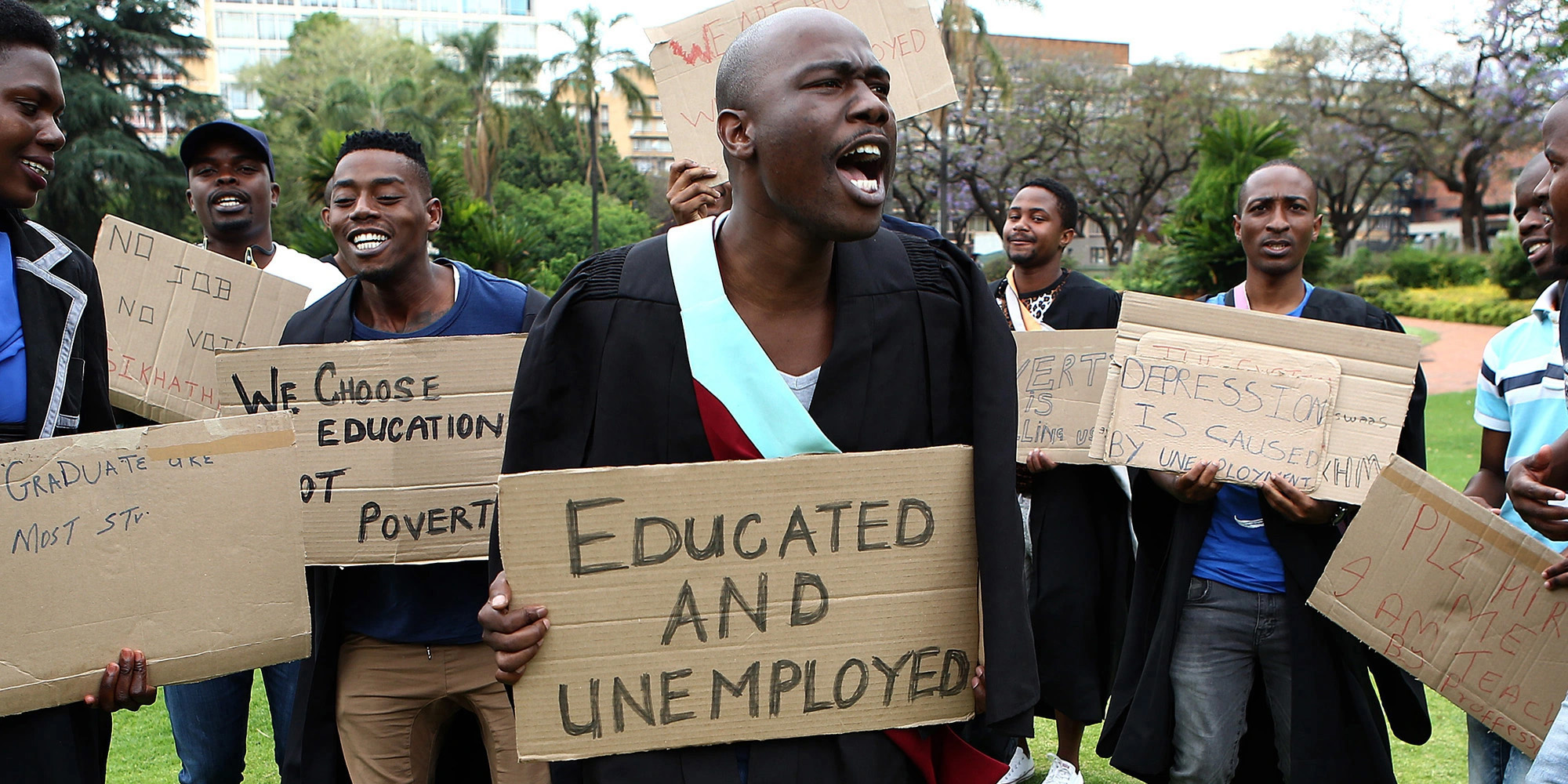When Cyril Ramaphosa ascended to the Presidency after the 2019 general election, one of his missions was to push reforms aimed at averting an economic and fiscal collapse and rebuilding capacity in the public sector.
After all, confidence and goodwill towards SA had been eroded after years of State Capture corruption and bizarre policy decisions under the Jacob Zuma presidency. During Zuma’s years in office, the domestic economy suffered a sustained period of sluggish growth, failing to expand by more than 2% a year since 2013. It even battled to grow faster than the population, making people poorer.
Public finances weakened as government spending ballooned towards several unproductive initiatives such as bailouts for state-owned enterprises (SOEs) and faster-than-inflation growth in the pay of public servants. SOEs such as Eskom and Transnet were used to grease patronage networks and strayed away from the ANC’s ambition of using them to lead the country’s economic and social development.
So, in came Ramaphosa and former finance minister Tito Mboweni in October 2020 to arrest SA’s decline. The pair launched Operation Vulindlela, a joint initiative between the Presidency and the National Treasury that sought to support and motivate government departments to change the fabric of the economy by implementing a small number of pro-growth and investment reforms. Operation Vulindlela is not a reform-implementing initiative but provides oversight and guidance in the work of government departments and SOEs in mounting reforms.
Its goals were simple. Lobby for reforms that reduce the cost of doing business in SA, and promote productivity and competition by increasing the role of the private sector in all areas of the economy including energy, telecommunications, logistics, and others to lessen the state’s power over the economy.
Since 2020, Operation Vulindlela has clocked up a few milestones that the Treasury says have unlocked new investments into the economy worth R500-billion.
Radiofrequency spectrum was recently auctioned and successfully allocated to telecommunications companies for the first time in 18 years. The release of new spectrum brings the promise of fewer dropped calls, faster internet download speeds, and lower mobile data costs. Regulatory changes were made to get more megawatts (MW) from renewable energy sources and bring competition to the energy market. Although 22,500MW of solar and wind energy is expected to be connected to the grid over the next five years, only a pitiful 150MW was added over the past five years due to inertia by Gwede Mantashe and his Department of Mineral Resources and Energy, causing great harm to the economy.
The backlog of water-use licence applications has been cleared and the Treasury estimated that it now takes up to 90 days to obtain a licence, from 300 days previously. Reforms are underway in SA’s visa system. And private sector players and their capital are being embraced by Transnet to run its rail and port network. This is significant as we haven’t seen greater collaboration between business, government, and SOEs for years. There was a big trust deficit between all three during Zuma’s nine-year-long presidency.
Read more in Daily Maverick: Hey politicians, it’s time to pack away the election playbook and get to work
The Bureau for Economic Research (BER) has modelled that SA could lift its economic growth rate to 3.5% by 2029 if the reform momentum continues and is accelerated.
Growth is great but it is not a panacea to SA’s economic malaise. Growth, if not meaningful and inclusive, can be harmful and create an even bigger social and economic exclusion problem. In macroeconomic circles, this is known as jobless growth, which happens when the unemployment level remains the same or worsens despite a rapidly expanding economy. SA is not at this juncture as rapid economic expansion remains a pipedream (for now). In their daily lives, people on the ground need to feel the 3.5% growth that the BER projects. They need to see an improvement in their quality of life, and easily have access to good state-run services in education and health. They also need an easier entry point into the labour market, and a clear pathway for upskilling. The loss of 74,000 jobs between March 2023 and March 2024 — as revealed on Tuesday by Statistics SA — is another stark reminder of the crisis.
While the first phase of Operation Vulindlela was anchored on pulling SA and its economy from the precipice (and rightly so), its second phase should prioritise economic inclusion. Making the economy work for everyone, not just a few who already benefit from it, should be the first prize. Doing so will require new thinking.
For example, SA’s renewable energy market is booming, with many solar and wind projects in the offing, thanks to the private sector’s desire to end Eskom blackouts permanently. Operation Vulindlela could treat the renewable energy sector as a key cog in the economy, in which jobs are created, people are retained, and equipped with the necessary skills required for the future economy. It’s just an idea. People much smarter than me are already thinking about the shape of Operation Vulindlela version 2.0.
The good news is that there seems to be political will among ANC head honchos to continue with Operation Vulindlela, under the national unity government.
Happy investing. DM
This article is more than a year old
Business Maverick
After the Bell: Next phase of SA’s reform agenda should target meaningful job creation
The second phase of Operation Vulindlela, a joint initiative for reforms between the Presidency and the National Treasury, should prioritise economic inclusion. Making the economy work for everyone, not just a few who already benefit from it, should be the first prize.





